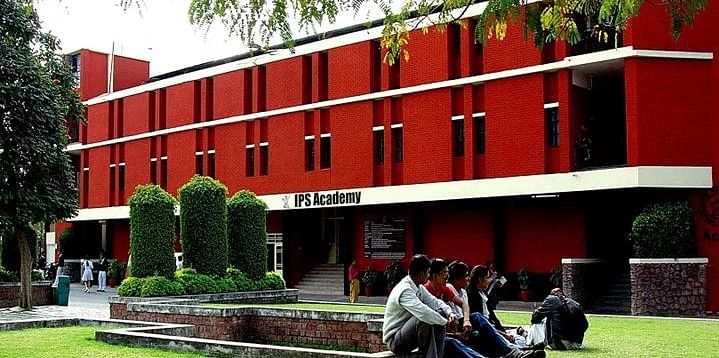MBA in Business Economics Syllabus and Subjects

The MBA Economics syllabus combines applied economics with business studies. The course spans two years, divided into four semesters, and covers essential topics including Macro & Microeconomics, MIS, Public Finance and Taxation, and Statistical Methods. Graduates have job opportunities in both private and public sectors, with an average salary of INR 10 LPA.
Table of Content
Semester Wise MBA Business Economics Syllabus
The MBA Economics syllabus covers various topics such as Accounting, Marketing, Statistics, Taxation, and Finance. Elective courses are offered from the second year. See tables for the semester-wise MBA Business Economics Syllabus.
MBA in Business Economics 1st Year Syllabus
The table given below highlights MBA Business Economics Syllabus for 1st Year:
| Semester I | Semester II |
| Micro Economic Analysis | Macroeconomic Analysis & Policy |
| Business Accounting | Public Finance and Taxation |
| Marketing Management | International Economics |
| Computer Application | Indian Financial Systems |
| Project Appraisal and New Venture Analysis | Advanced Study of Indian Economy |
| Statistical Methods | Basic Econometrics |
MBA in Business Economics 2nd Year Syllabus
The table given below highlights MBA Business Economics Syllabus for 2nd Year:
| Semester III | Semester IV |
| Business, Government & Society | Contemporary Indian economy |
| Management Information System | Business Policy and Strategic Management |
| Operations Research | Business Ethics and Stress Management |
| International Financial System | Time Series Analysis and Business Forecasting (Elective) |
| Development Economics | International Marketing (Elective) |
| Summer Internship/ Training Report | Dissertation |
MBA in Economics Subjects
MBA in Economics subjects are classified into core, elective, and practical subjects. Internships and projects are an essential part of the MBA Business Economics syllabus. The MBA economics subjects are listed below and categorically divided:
MBA in Business Economics Core Subjects
Given below are the core subjects offered in the MBA in Economics subjects:
- Micro Economics Analysis
- Statistical Methods
- Principles of Management
- Organizational Behaviour
- Business Accounting
- Computer Application
- Macro-Economic Analysis
- Public Finance and Taxation
- Business Environment and Communication
- Indian Financial Systems
- Advanced Study of the Indian Economy
- Business Research Methodology
- Talent Acquisition and Development
MBA in Business Economics Elective Subjects
Apart from core subjects, there are some of elective as well in the MBA in Economics sbucjects:
- Advanced Econometrics
- Topics in Game Theory
- Simulation and Modelling in Business Management
- Marketing Research
- Logistics and Supply Chain Management
- International Marketing
- Customer Relationship Management
- Investment and Portfolio Theory and Management
- Corporate Restructuring, Mergers & Acquisitions
- Credit & Risk Management/Financial Risk Management
MBA in Business Economics Subjects In Detail
MBA Economics subjects focuses on a wide variety of topics, some of which are highlighted in the table below:
| MBA in Economics Subjects | Topics |
| Micro Economics Analysis | Demand and Supply, Consumer Theory, Producer Theory, Markets and Strategic Interaction, . Basic ideas of welfare economics, Market failure, Externalities. |
| Accounting for Business | Introduction to Accounting system, Accounting Records & Systems, Income measurement/Revenue recognition and Current assets. |
| Marketing Management | Macro & Micro business environment analysis, Competitive analysis, New product management, Pricing & its management. |
| Quantitative Techniques in Management | Linear Programming, Transportation and Assignment Models, Integer Programming, Goal Programming and Non-linear Programminig, Decision Theory. |
| Statistics and Data Analysis | Descriptive Statistics and Exploratory Data Analysis, Basic probability theory, Discrete and Continuous Probability Distributions, Statistical Inference (Sampling and Estimation). |
MBA in Business Economics Course Structure
The MBA in Economics in India is based on the CBCS system and includes electives and projects in the 2nd year. The 1st year focuses on the fundamentals. Below is the general course structure for an MBA in Economics in India.
- IV Semesters
- Core and Elective subjects
- Project Submission
- Internship
MBA in Business Economics Teaching Methodology and Techniques
MBA in Business Economics syllabus is taught via course content and level of study. Students must undertake an independent study to submit their final-year internship file. Some of the teaching methods and technologies in the MBA Business Economics syllabus are:
- Case Study Methods
- Presentations
- Business Quizzes
- Field Projects and Assignments
- Guest Lecturers
- Seminars
- Conference Events
- E-learning
MBA in Business Economics Projects
In MBA Economics syllabus, projects make up a large part of the credit. They involve industry case studies to demonstrate understanding of the course material. Here are some potential project topics for MBA in Economics:
- Bank Regulation in India
- The State of India's Economy
- The Delhi Metro Project
- Lessons from Economic Financial Crises in Recent Times
- Global Economic Crises
- Free Trade and Development
- Mahatma Gandhi National Rural Employment Guarantee Act
MBA in Business Economics Reference Books
The Economics MBA syllabus lists many reference books by various authors and publishers. See examples in the table below.
| Books | Authors |
| Outliers: The Story of Success | Malcolm Gladwell |
| Rich Dad Poor Dad | Robert Kiyosaki and Sharon Lechter |
| Freakonomics | Steven D. Levitt and Stephen J. Dubner |
| Capital: A Critique of Political Economy | Karl Marx |
| Sam Walton: Made in America | Sam Walton |
Top MBA in Business Economics Colleges
Top Management Entrance Exams
MBA in Business Economics Fee Structure
FAQs on MBA in Business Economics Syllabus and Subjects
Q: What are the topics of economics in MBA?
Q: What is Business Economics in MBA?
Q: What is the benefit of MBA in business economics?
Q: What is the salary of MBA business economics?
























